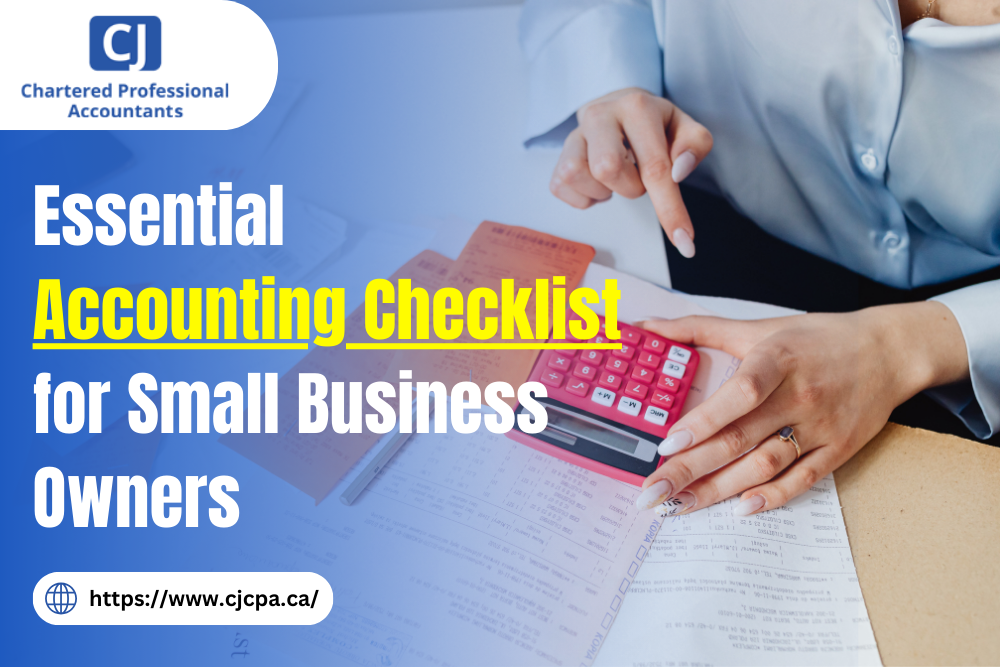5 Financial Small Business KPIs Every Canadian Business Should Be Tracking in 2025
Stay updated with current accounting standards, business compliance, tax preparation tips, and latest news.

29 Jul 2025
You can’t improve what you don’t measure. That’s the challenge most Canadian businesses face in 2025. With shifting tax laws, economic uncertainty and rising costs, staying financially healthy isn’t just about making money, it’s about knowing exactly how your business is performing. That’s where small business KPIs come in. These core metrics help you make faster, smarter decisions without drowning in data.
Key Takeaways: Why Financial KPIs Matter
- Track financial performance across profit, cash flow and growth.
- Stick to 5 powerful indicators instead of tracking 20+.
- Outsource KPI tracking for accuracy, consistency, and peace of mind.
What Are Metrics?
Metrics are quantifiable measures used to assess, compare, and track performance over time. In finance, metrics often refers to values that evaluate profitability, liquidity, or efficiency. When used effectively, they help guide strategy and improve decision-making.What Are KPIs?
Key Performance Indicators (KPIs) are specific financial metrics that show whether a business is meeting its goals. In the context of small business KPIs, they provide insight into profitability, financial health and operational efficiency, which are crucial for thriving in Canada’s competitive market.Top 5 KPIs For Small Businesses
KPI 1: Gross Profit Margin
This KPI reveals how much money your business keeps after covering the direct costs of producing your product or service. A healthy gross profit margin means your pricing strategy and production costs are well-balanced. Formula: (Revenue – COGS) ÷ Revenue × 100 Why it matters: In industries like retail or manufacturing, this metric helps you monitor how efficiently you’re producing and selling goods.KPI 2: Net Profit Margin
Net profit margin measures the actual profitability of your business after all expenses, including taxes and interest, are paid. It’s the bottom line. Formula: Net Income ÷ Revenue × 100 Why it matters: It shows how much profit you’re making from every dollar of revenue, which is crucial for long-term sustainability and investment decisions.KPI 3: Current Ratio
This KPI helps assess whether your business can pay off short-term debts with short-term assets. It measures liquidity and operational stability. Formula: Current Assets ÷ Current Liabilities Why it matters: A low ratio could mean cash flow problems, while a high ratio suggests strong short-term financial health.KPI 4: Accounts Receivable Turnover
This tracks how quickly your business collects payments from customers. If your turnover is low, your working capital may be tied up in unpaid invoices. Formula: Net Credit Sales ÷ Average Accounts Receivable Why it matters: Canadian businesses often work with 30-90 day payment terms. This KPI keeps your cash flow in check.KPI 5: Debt-to-Equity Ratio
This ratio shows how much of your company is financed by debt versus your own investment. It’s a measure of financial leverage and risk. Formula: Total Liabilities ÷ Shareholders’ Equity Why it matters: If you're planning to expand or take on loans, this KPI shows whether you're over-leveraged or financially balanced.How Many KPIs Should a Small Business Have?
Many entrepreneurs wonder: how many KPIs should they be tracking? The answer is five to six. These core indicators give a clear picture of your business without overwhelming you with data. Focus on the KPIs that align with your financial goals and industry norms.How to Track KPIs
While tools like QuickBooks and Xero offer dashboard tracking, small businesses benefit more by outsourcing KPI tracking to accounting professionals. This eliminates the risk of errors, reduces time spent on reporting and ensures compliance. Benefits of outsourcing:- Professional analysis without software learning curves
- Customized monthly/quarterly reports
- More time to focus on growth


